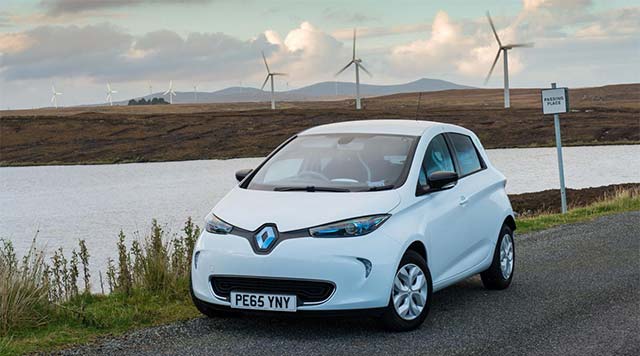 |
| BAIC EU260 |
Tesla and the Rest
After the latest report on batteries, there were readers asking for the breakdown by Automakers, instead of battery makers, so here are is a Top 5 ranking battery use by Car Maker.
| Pl | Model | H1 '16 (MWh) |
| 1 | Tesla (Panasonic) | 2.484 |
| 2 | BYD (BYD) | 1.416 |
| 3 | Nissan (AESC) | 930 |
| 4 | BAIC (BPP/CATL) | 435 |
| 5 | BMW (Samsung) | 343 |
- As expected, Tesla is miles away from the rest of the competition due to their XL-sized batteries. For those asking for the calculation methodology, as there is no breakdown available between the 90/75 kWh batteries, i made the calculation using an average of 85 kWh;
- BYD is a comfortable Second. Numbers went down slightly regarding the Batteries report, because Denza batteries figures were removed;
- Nissan is Third, helped by the increase in size (30kWh) of most of its units sold;
- Below Nissan, we have a surprise, with BAIC jumping to Fourth, battery-wise, thanks to an all-electric, and battery-heavy line-up. For example, its EU260 sedan has a 41.4kWh battery, enough for...You guessed it, 260 kms;
- In Fifth we have BMW, dragged down by most of its sales (68%) being made of small-batteries PHEV's;
Finally, outside this Top 5, the remaining Best Selling brands are Volkswagen (Panasonic), hindered by a PHEV-heavy (62%) line-up, adding just 263 MWh to the market, Mitsubishi (GS Yuasa), suffers from the same syndrome with 236 MWh.
On the LG Chem side, Renault is the best representative, being #6 in the ranking with 314 MWh, thanks mostly to the success of the Zoe, Chevrolet has a rather low result of 221 MWh, surely to be greatly improved with the Bolt.
The #10 Best Selling EV brand, Ford, shows some really paltry results, contributing with only 68 MWh to LG (Fusion Energi and Focus Electric) and 28 MWh to Panasonic (C-Max Energi), to a grand total of...96MWh, or almost one tenth of Nissan. That's what you get when you only have 7.6KWh PHEV's and a compliance BEV.




